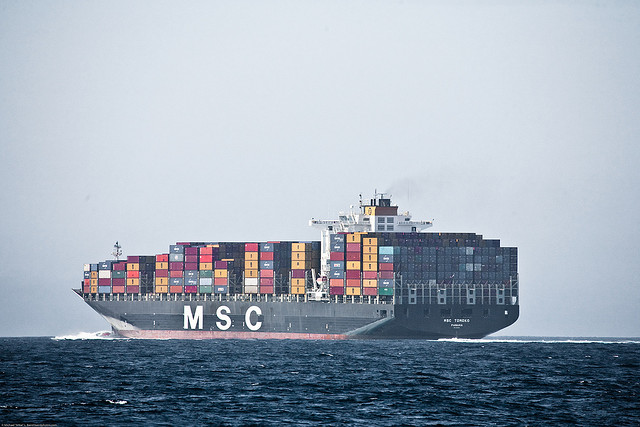Techstars Seattle Startup Shippable Raises $2.05M For Continuous Integration Platform Built On Docker

Shippable, a Techstars Seattle startup, has raised $2.05 million in seed funding for its continuous integration service that is built using Docker, the popular Linux container used for its lightweight portability. The syndicated round was led by Chris DeVore of Founders Co-op, along with Divergent Ventures, Paul Allen’s Vulcan Capital, Madrona Venture Group and several angel investors.
The service is designed to help developers ship code faster by automating the workflow that software undergoes from the time it is developed to the time it is deployed. Shippable was originally built using its own Linux container. But their original process became complex, especially with the heterogeneous nature in which apps are developed. Docker open sourced the management aspects of LXC containers, making the process for Shippable more unified with varied application environments.
“What I needed 15 developers and over a year to create was handed to me for free, “said Co-Founder and CEO Avinash Cavale about the Docker integration.
Docker, an open-source project led by the company of the same name, makes it easier by automating the workflow from the ground up. Traditionally, continuous integration platforms have depended on using virtual machines to manage the workloads. Cavale said in an email interview that Shippable’s speed and comparable complexity to other services is what makes it a disruptor in the space.
We are the only ones who provide persistent state. i.e. every time a build runs you do not lose the prior state (unless required). Rest of the competition is VM based they reset the environment due to cost structure. That means every build the initial setup of gems, packages and services including git clone that has to be done again. a typical builds runs for 20 minutes, over 12 minutes are just pre-req installs which happens only once on our platform.
The Docker difference is its application-centric architecture as described on StackOverflow:
Docker is optimized for the deployment of applications, as opposed to machines. This is reflected in its API, user interface, design philosophy and documentation. By contrast, the lxc helper scripts focus on containers as lightweight machines – basically servers that boot faster and need less ram. We think there’s more to containers than just that.
Speed is the differentiator in almost any market that is getting disrupted by online services. In turn, online providers need faster ways to serve their customers. For example, a physical retailer will have to increasingly find new ways to minimize the costs that come with having a brick and mortar business. That means changing to a data-driven business that uses code as the base for its innovation.
In that shift to a more code-oriented business, companies have to pay attention to the ways they manage their overall application lifecycle management (ALM) processes. These processes have to reflect the company’s focus on providing customer experiences that are better than what the competition offers.
Virtual machines were ideal for physical servers during the age of IT. They served as the foundation for ALM solutions from companies like HP and IBM. Today, there is a new generation of providers that still use virtual machines as the core of their technology.
Docker, though, changes the game, Cavale said. A VM image on AWS is on average 1.5GB. It can only be restored within the availability zone where it has been deployed. He said to move the VM requires the image to be remade. ”We believe hypervisors will get containerized and as a result the new ALM process and platforms are needed,” Cavale said. “Shippable is starting with continuous integration which is a bridge between the old world and the new world that we see. We will own the dev mind share due to sheer speed and simplicity and evolve the new paradigm of software development.”
The cloud services we know of today were built on client/server systems. These cloud services use hypervisors as the way to virtualize workloads. Most continuous integration platforms were built on VMs, making them useful but comparatively slower to load due to the sheer weight of the VM. Competitors to Shippable include providers like CircleCi, CloudBees, Perforce and Atlassian.
Docker does have different security requirements which will be a hindrance for Shippable. Security can be integrated but it does require knowledge of the Linux container environment. That’s in comparison to virtualization, which as written in InfoQ, has an “extra layer of isolation that the hypervisor brings.”
(Feature image courtesy of Mike Baird on Flickr via Creative Commons)


